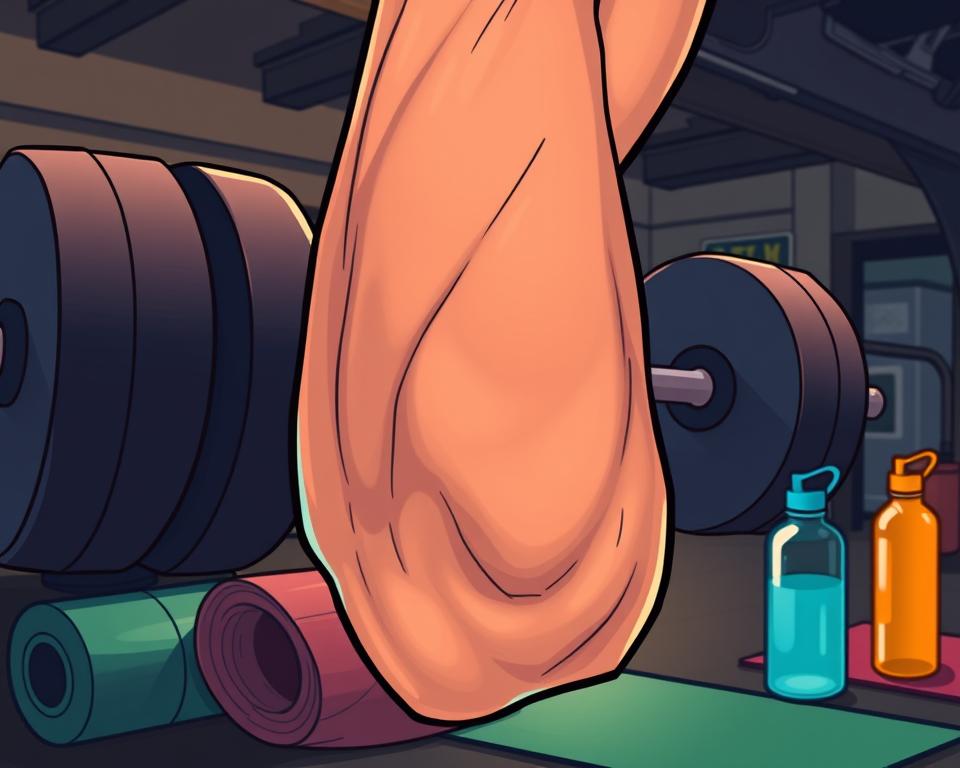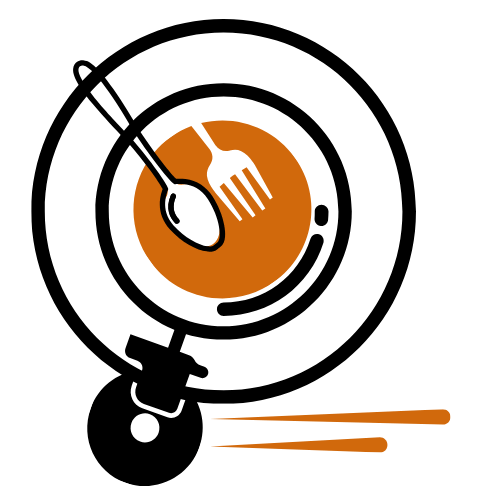bodybuilding & Fitness
Build Muscle Fast: Expert Tips for Muscle Gain
As a bodybuilder, you aim to change your body and reach your muscle goals. This guide offers expert advice to help you build muscle quickly. You’ll learn about muscle growth, setting goals, and creating a workout plan that fits you.
Eating the right foods is key for muscle growth. We’ll talk about the role of protein, carbs, and fats in your diet. We’ll also cover supplements and how they help with muscle building.
Recovery is as important as training. We’ll share tips on sleep, active recovery, and staying hydrated. This helps your body recover and grow stronger.
This guide will help you avoid common mistakes like overtraining and poor nutrition. We’ll stress the need for consistency and share ways to stay motivated. By the end, you’ll know how to build muscle fast and achieve your dream body.
Understanding the Basics of Bodybuilding
Bodybuilding has been a favorite among fitness lovers for years. It’s about shaping the body through weightlifting, eating right, and hard training. Whether you want big muscles or just to get stronger, knowing bodybuilding basics is key.
What is Bodybuilding?
Bodybuilding is all about making the body look good. It’s about getting strong and looking symmetrical. Bodybuilders work hard, eat well, and use special supplements to grow muscles and look lean.
Key Principles of Muscle Growth
- Hypertrophy: Growing muscle fibers is the main goal of muscle growth.
- Progressive Overload: Keep getting stronger by lifting more weight or doing more reps over time.
- Nutrient Intake: Eat a diet full of protein, carbs, and fats to build muscles.
- Recovery: Rest well between workouts to help muscles heal and grow.
Knowing these muscle growth and bodybuilding principles helps you plan your workouts and diet. This way, you can reach your fitness goals and change your body.
“The only place where success comes before work is in the dictionary.”
Setting Realistic Goals for Muscle Gain
Starting a muscle-building journey is exciting and rewarding. But, setting realistic goals is key to success. Whether you want to build lean muscle or grow overall muscle, having a clear plan is essential.
Short-Term vs. Long-Term Goals
It’s important to balance short-term and long-term goals for muscle growth. Short-term goals might be to do a certain number of reps or lift a specific weight in a few weeks or months. These goals give you a sense of achievement and keep you motivated. Long-term goals could be to build a lot of lean muscle over several months or years.
Tracking Your Progress
It’s vital to track your progress to stay on track and make needed changes. Here are some ways to monitor your muscle growth:
- Body measurements: Record your body measurements, like biceps, chest, and waist, to see muscle changes over time.
- Progress photos: Take regular photos to visually track your muscle growth and transformation.
- Strength gains: Log your strength improvements by recording weights and reps for exercises like squats, deadlifts, and bench presses.
Your goals should be specific, measurable, achievable, relevant, and time-bound (SMART). This helps you stay motivated and on track. As you progress, feel free to adjust your goals to keep challenging yourself.
Designing an Effective Workout Routine
Creating a workout plan that builds muscle is key for anyone into strength training and weightlifting. Knowing the types of workouts and how to plan your week is vital. It greatly affects your muscle growth and development.
Types of Workouts: Strength vs. Hypertrophy
Workouts can focus on strength or hypertrophy. Strength training uses heavy weights and fewer reps to boost your strength. Hypertrophy training uses moderate weights and more reps to grow muscles. Mixing both in your routine can lead to the best results.
Sample Weekly Workout Schedule
A good weekly workout plan might look like this:
- Monday: Chest and triceps (hypertrophy)
- Tuesday: Back and biceps (strength)
- Wednesday: Legs (hypertrophy)
- Thursday: Rest day
- Friday: Shoulders and abs (strength)
- Saturday: Full-body (hypertrophy)
- Sunday: Rest day
It’s important to balance your workouts. This lets your muscles recover and grow. Try different exercises, rep ranges, and rest times to see what works for you.
“The secret to muscle growth is not just in the workout itself, but in the way you design and structure your routine.”
Nutrition: Fueling Your Body for Growth
Proper nutrition is key to building muscle and reaching your fitness goals. Your diet affects muscle growth, weight control, and lean muscle mass. We’ll look at the role of macronutrients like protein, carbs, and fats in muscle building.
Importance of Protein in Muscle Building
Protein is vital for muscle repair and growth. It helps fix muscle fibers damaged during workouts. Aim for 0.8 to 1.2 grams of protein per pound of body weight daily, based on your fitness nutrition goals and bulking and cutting cycles.
Carbohydrates and Fats: The Right Balance
Carbs and fats are also important for muscle growth and health. Carbs give you energy for workouts, while fats support hormone production and cell function. Finding the right balance between these macronutrients fuels your body for lean muscle mass growth.
“Proper nutrition is the foundation for muscle growth. Ensure you’re consuming the right amount of protein, carbs, and fats to support your fitness nutrition goals.”
Everyone’s nutritional needs vary. Try different macronutrient ratios and bulking and cutting cycles to find what works for you and your fitness goals.
Supplements: Do You Need Them?
Supplements in bodybuilding and muscle growth are often debated. A balanced diet gives the needed nutrients for muscles. But, some supplements might help reach your fitness goals. Let’s look at common bodybuilding supplements and their benefits.
Common Supplements for Muscle Gain
- Protein Powders – These are a favorite among athletes and bodybuilders. They offer a lot of high-quality protein for muscle recovery and growth.
- Creatine – This natural compound boosts exercise performance and muscle growth. It’s a top choice for many bodybuilders.
- Pre-Workouts – These supplements have ingredients like caffeine, amino acids, and vitamins. They help increase energy, focus, and endurance during workouts.
Safety and Effectiveness
It’s key to think about the safety and effectiveness of supplements. Many supplements are helpful, but research and consult a healthcare professional first. Some supplements might interact with medications or have side effects. Always use them carefully and responsibly.
“The key is to find the right balance of supplement information, bodybuilding, and muscle growth to support your fitness journey without compromising your overall health and well-being.”
Choosing to use supplements depends on your needs, goals, and a healthcare provider’s advice. Knowing about common supplements and their benefits helps you make smart choices. This way, you can improve your bodybuilding and muscle growth.
The Role of Recovery in Muscle Development
Building muscle is more than just hard workouts and strict diets. Recovery is key for muscle growth and strength. Learning how to recover well can help you grow muscle faster and avoid setbacks.
Importance of Sleep
Sleep is vital for recovery. While you sleep, your body fixes and grows muscles. Good sleep helps your muscles rebuild and grow. It also controls hormones like testosterone and growth hormone that help muscles.
Active Recovery Techniques
Active recovery methods are also important. They help your muscles grow and get stronger. Some good methods include:
- Low-intensity cardio, such as walking or light cycling
- Stretching and mobility exercises
- Foam rolling and self-myofascial release
- Gentle yoga or tai chi
These activities boost blood flow, lessen soreness, and fix muscle damage. They support your muscle growth and strength training.

“Proper recovery is just as important as the workouts themselves when it comes to building muscle and improving strength.”
A mix of hard training and smart recovery is essential. It’s the path to reaching your muscle and strength goals.
Common Mistakes to Avoid in Bodybuilding
Starting your bodybuilding journey? It’s important to know common mistakes that can slow you down. By avoiding these, you can make the most of your workouts and reach your fitness goals faster.
Overtraining: Signs and Consequences
Overtraining is a big mistake in bodybuilding. Working out too hard can cause burnout, injuries, and less muscle growth. Watch for signs like constant tiredness, poor performance, and taking longer to recover. Remember, rest and recovery are key for muscle repair and growth.
Ignoring Nutrition
Fitness nutrition is crucial for bodybuilding success. Many bodybuilders overlook how diet affects muscle growth. Skipping meals can slow down your progress. Make sure you eat enough protein, carbs, and healthy fats to fuel your body and support muscle growth.
Consistency and patience are essential in bodybuilding. Avoid common errors, focus on good fitness nutrition, and listen to your body. This way, you’ll see lasting muscle growth and overall health.
Importance of Consistency in Training
Consistency is key in bodybuilding and strength training. Creating a lasting workout routine is crucial for real results and reaching your fitness goals.
Building a Routine
Creating a consistent routine boosts your workout routines effectiveness. Set aside specific times for workouts and treat them as non-negotiable. Regular workouts help your body adapt and grow stronger.
- Choose specific days and times for bodybuilding sessions.
- Follow a routine, like lifting weights 3-4 times a week.
- Up the challenge as you get fitter.
Staying Motivated
Staying motivated can be tough, especially when you hit a wall. Use strategies to keep your strength training spark alive.
- Set achievable goals and celebrate every small win.
- Surround yourself with a supportive bodybuilding community, online or in-person.
- Change up your workout routines to avoid boredom.
“Consistency is the foundation upon which true change is built. Commit to your bodybuilding journey, and the results will follow.”
Remember, consistency in strength training and workout routines unlocks your full potential. Stay committed, stay motivated, and enjoy the journey. Your bodybuilding transformation is on its way.
Incorporating Cardio into Your Regimen
As a bodybuilder, you might focus on building lean muscle through strength training. But adding cardio to your routine can boost your fitness. It helps with fat loss and can even aid in muscle growth.
Benefits of Cardio for Bodybuilders
Cardio improves your heart health and endurance. It also supports your bodybuilding goals in several ways:
- Enhances fat-burning: Cardio helps burn extra calories and reduce body fat. This makes your muscles more visible.
- Boosts recovery: Moderate cardio improves blood flow and oxygen delivery. It helps your muscles recover after intense workouts.
- Supports overall fitness: Cardiovascular fitness enhances your ability to do high-intensity training. This leads to better muscle growth and development.
Types of Cardio to Consider
There are many cardio options for bodybuilders. Some effective ones include:
- High-Intensity Interval Training (HIIT): HIIT workouts, like sprints or cycling intervals, burn fat while keeping muscle mass.
- Steady-state cardio: Activities like jogging, swimming, or cycling at a steady pace are also good for bodybuilders.
- Low-impact cardio: Low-impact exercises like rowing, elliptical training, or stair climbing offer a cardio boost without joint stress.
It’s important to find a cardio routine that fits with your strength training. Try different types to see what works best for your goals and fitness.

The Impact of Hydration on Muscle Growth
Drinking enough water is key for muscle growth and fitness. As someone who works out, knowing how water helps your muscles is important. It can really improve your results.
How Much Water Do You Need?
The amount of water you should drink varies. It depends on your activity, weight, and more. Here’s a simple rule:
- Drink half your body weight in ounces of water each day. For example, if you weigh 160 pounds, aim for 80 ounces of water.
- Add 16-24 ounces of water for every hour of hard exercise or activity.
Drinking enough water is vital. It helps your muscles work right, aids in recovery, and boosts your health and performance.
Signs of Dehydration
Knowing when you’re dehydrated is important. It can hurt your muscle growth and fitness. Look out for these signs:
- Dark yellow or concentrated urine
- Feeling thirsty or having a dry mouth
- Fatigue, dizziness, or headaches
- Reduced exercise performance and muscle cramps
If you notice these signs, drink more water right away. It’s crucial for your muscle growth and recovery.
Proper hydration is essential for maintaining muscle function, aiding recovery, and supporting overall health and performance.
Mental Strategies for Bodybuilding Success
Success in bodybuilding isn’t just about physical strength. The mental game is key to growing muscles and reaching fitness goals. Discover these powerful mental strategies to boost your bodybuilding journey.
Visualizing Your Goals
Visualization is incredibly powerful. Spend daily time imagining yourself winning your next bodybuilding competition or lifting heavier weights in strength training. Picture the process, emotions, and the joy of achieving your muscle growth goals. This mental practice sharpens focus and motivates you to make your dreams come true.
Staying Positive During Setbacks
Bodybuilding is tough, and you’ll face challenges and setbacks. It’s vital to stay positive and resilient. When you hit a plateau or get injured, don’t get down. Instead, see it as a chance to learn and improve. Celebrate small wins and remember, every setback is a step towards growth.
“The only way to do great work is to love what you do. If you haven’t found it yet, keep looking. Don’t settle.” – Steve Jobs
By using visualization and staying positive, you’re on the path to reaching your bodybuilding goals. Remember, your mind is as crucial as your body in achieving muscle growth and strength training success.
Seeking Professional Guidance in Bodybuilding
Starting your bodybuilding journey? Getting help from experts can really help you grow. Whether you’re new or have been lifting for a while, working with pros can improve your skills. They can also help you reach your muscle-building goals faster.
When to Hire a Personal Trainer
Getting a personal trainer is great if you’re new to lifting or feel like you’re not making progress. A good trainer will look at your strengths and weaknesses. They’ll create a plan just for you to build muscle and avoid injuries.
They also offer feedback and support to keep you motivated. This can really help you stay on track.
Benefits of Group Classes and Workshops
Group classes and workshops are also great for bodybuilders. They focus on specific weightlifting skills, like how to do exercises right. You’ll learn from experts and get to train with others who share your goals.
This way, you can learn more about bodybuilding, improve your weightlifting techniques, and find new ways to make your workouts better.

